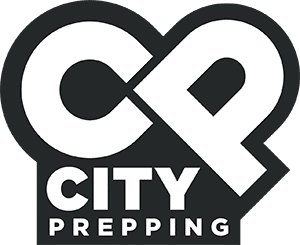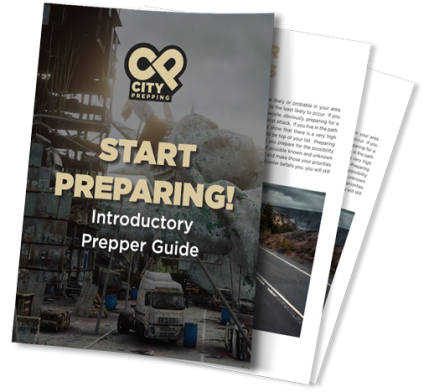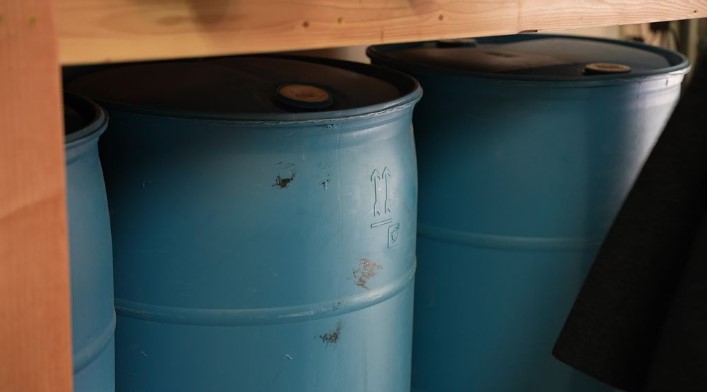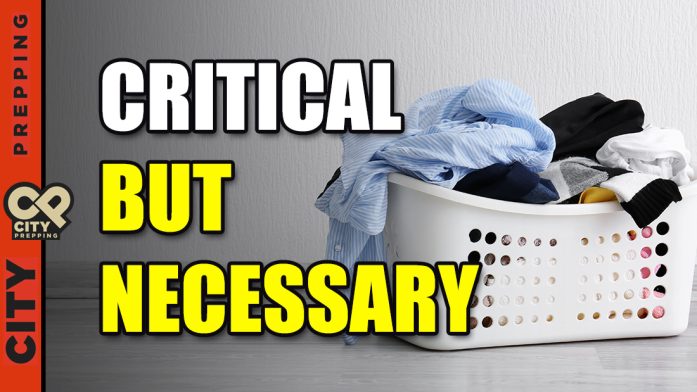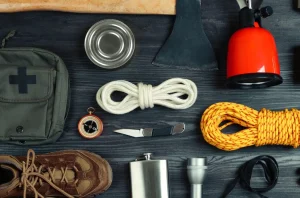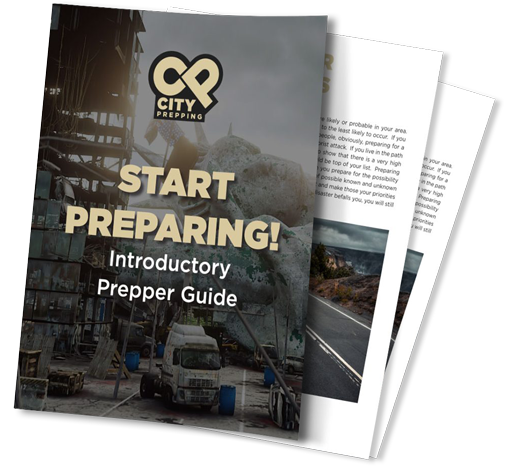ACTIONS YOU CAN TRUST
While this video covers the issue of knowing whom to trust after SHTF, it is critical to develop relationships with others you can rely upon while times are good. After a potential, prolonged grid-down scenario, finding those that you can trust will become exponentially more difficult, so it is important that you start now. But what are the traits you should look for both before and after an SHTF situation? Over the years, psychologists and behaviorists have developed several signs to look for that are the hallmark of a trustworthy person. That is not to say that a nefarious person can’t spoof these signs, and it is essential to note that a genuine, trustworthy person will have multiple signs for you to confirm. While you may never truly know if someone is acting genuinely or they are a sociopath manipulating you by appearing and acting trustworthy, the fact remains that most people can’t be bothered maintaining a facade of genuineness if they truly aren’t. There are easier targets. You can look for these simple traits in a person to get a gauge on if they can be trusted or not. GRATITUDE A trustworthy person is more inclined to be grateful for your assistance or just your presence. They recognize your worth, and they realize that you both are “in it together” when they are with you. They might follow up with you with something you discussed when you were together, like a link to an article or information. They might even bake you a tray of brownies or bring you something from their garden. These are all signs they are grateful for you. They respect and value you. While not a definitive indicator of trust, seeing this trait of gratitude is a more reliable step in building a more profound, trusting relationship with someone.
CONFIDENCE
A trustworthy person is more inclined to be grateful for your assistance or just your presence. They recognize your worth, and they realize that you both are “in it together” when they are with you. They might follow up with you with something you discussed when you were together, like a link to an article or information. They might even bake you a tray of brownies or bring you something from their garden. These are all signs they are grateful for you. They respect and value you. While not a definitive indicator of trust, seeing this trait of gratitude is a more reliable step in building a more profound, trusting relationship with someone.
CONFIDENCE
 They confide in you, and they keep your confidence. Confiding in someone makes a person slightly vulnerable. When a person confides in you, it demonstrates that they trust you and want you to be open with them. As a litmus test, though, make sure the person isn’t gossiping or dishing out information about other people to you. If they are, it is highly likely that they will take whatever you tell them and freely tell that to someone else. If they, however, confide in you that they’re worried about a looming disaster, this is your opportunity to start a prepping conversation with them. Maybe confide in them that you share the same concern, and here are a few, not all, of the things you are doing.
CONSISTENCY
They confide in you, and they keep your confidence. Confiding in someone makes a person slightly vulnerable. When a person confides in you, it demonstrates that they trust you and want you to be open with them. As a litmus test, though, make sure the person isn’t gossiping or dishing out information about other people to you. If they are, it is highly likely that they will take whatever you tell them and freely tell that to someone else. If they, however, confide in you that they’re worried about a looming disaster, this is your opportunity to start a prepping conversation with them. Maybe confide in them that you share the same concern, and here are a few, not all, of the things you are doing.
CONSISTENCY
 A trustworthy person will be consistently the same in their interactions with you. They will also be consistent in all their actions. If they promise to let you know something, they do. If they promise to attend a meeting or event with you and meet you at a particular time, they show up and do what they said. You learn, over time, that they are reliable, and you never suspect that they will let you down.
WORD-OF-MOUTH
A trustworthy person will be consistently the same in their interactions with you. They will also be consistent in all their actions. If they promise to let you know something, they do. If they promise to attend a meeting or event with you and meet you at a particular time, they show up and do what they said. You learn, over time, that they are reliable, and you never suspect that they will let you down.
WORD-OF-MOUTH
 When you are talking to someone else, what do they say about the person? I will often hear people say, “Oh, that guy is really solid. He’s a good guy.” I hope people say the same about me. When other people say a person is honest, intelligent, reliable, trustworthy, generous, or the like, it is probably true, or you are both being deceived. If a person says that another person is a liar, cheat, self-centered, or mean, you know that the dealings between those two individuals were problematic at best and, at worst, emblematic of traits that should result in your caution. The person you are talking to might just be mean, but maybe, just maybe, they’re showing you a red flag.
COMPASSION
When you are talking to someone else, what do they say about the person? I will often hear people say, “Oh, that guy is really solid. He’s a good guy.” I hope people say the same about me. When other people say a person is honest, intelligent, reliable, trustworthy, generous, or the like, it is probably true, or you are both being deceived. If a person says that another person is a liar, cheat, self-centered, or mean, you know that the dealings between those two individuals were problematic at best and, at worst, emblematic of traits that should result in your caution. The person you are talking to might just be mean, but maybe, just maybe, they’re showing you a red flag.
COMPASSION
 As I said earlier, many people can’t be bothered pretending to be genuine. There are too many easier marks for the con artist. Compassion is one of those traits that can be faked but usually isn’t. The good listener who keeps your confidence may have a compassionate heart. If the person selflessly helps others, that is a good sign they have compassion and can be trusted. Compassion equates to a genuine desire to help others. Genuine compassion is often anonymous and can be seen in people who open doors, pick things up off the ground for people, wave drivers ahead of them, and a thousand other small acts. It’s the small acts that indicate the actual size of a person’s heart and their true thoughts.
RELAXED
As I said earlier, many people can’t be bothered pretending to be genuine. There are too many easier marks for the con artist. Compassion is one of those traits that can be faked but usually isn’t. The good listener who keeps your confidence may have a compassionate heart. If the person selflessly helps others, that is a good sign they have compassion and can be trusted. Compassion equates to a genuine desire to help others. Genuine compassion is often anonymous and can be seen in people who open doors, pick things up off the ground for people, wave drivers ahead of them, and a thousand other small acts. It’s the small acts that indicate the actual size of a person’s heart and their true thoughts.
RELAXED
 A person who is relaxed and confident isn’t likely trying to sell you on the fact that they are a good person. It’s the person who has something to hide who may exhibit signs of anxiousness and anxiety. They could just be socially awkward, and many people are, but if they are trying to get you to do something for them or there is some great urgency that you act right now with them or for them, they are more than likely trying to manipulate you.
SHARED EXPERIENCE
A person who is relaxed and confident isn’t likely trying to sell you on the fact that they are a good person. It’s the person who has something to hide who may exhibit signs of anxiousness and anxiety. They could just be socially awkward, and many people are, but if they are trying to get you to do something for them or there is some great urgency that you act right now with them or for them, they are more than likely trying to manipulate you.
SHARED EXPERIENCE
 Some of the best relationships start with shared experiences. We are both waiting for our kids or both in a class together, and we strike up a conversation. When you can look at another person and feel connections of shared experience, you both are less apt to take advantage of each other, as you see yourself in them and vice-versa. After a disaster, everyone may be having the same crappy experience of the aftermath, so that’s not a good litmus test of trust. Still, trust is built up over time, so what is your history of shared experiences with the person. Were you both in the military? Did you both work at the same place? Have you been kind neighbors? Did you both buy the same product? Were your kids both in Scouts or school together? Whatever the experience is, the more shared experiences you have, the more you can likely trust the person. They see in you what you see in them.
COMMUNICATOR
Some of the best relationships start with shared experiences. We are both waiting for our kids or both in a class together, and we strike up a conversation. When you can look at another person and feel connections of shared experience, you both are less apt to take advantage of each other, as you see yourself in them and vice-versa. After a disaster, everyone may be having the same crappy experience of the aftermath, so that’s not a good litmus test of trust. Still, trust is built up over time, so what is your history of shared experiences with the person. Were you both in the military? Did you both work at the same place? Have you been kind neighbors? Did you both buy the same product? Were your kids both in Scouts or school together? Whatever the experience is, the more shared experiences you have, the more you can likely trust the person. They see in you what you see in them.
COMMUNICATOR
 Trustworthy people are often good communicators. The trustworthy person knows how to listen. They consider other opinions and aren’t rigidly locked in on their own, but they are also willing to provide their unvarnished opinion about something when asked. They don’t dominate the conversation. They don’t belittle people or use condescension. A good communicator indicates that they are not going to rush to judgment quickly. They are going to give full consideration to things. Note that being a good communicator isn’t just about speaking a lot. It’s about what you say. What is the message behind the words? Is there a motive? If there’s a motive laced in their communication, the person is more self-serving than authentically trustworthy.
LEARNERS
Trustworthy people are often good communicators. The trustworthy person knows how to listen. They consider other opinions and aren’t rigidly locked in on their own, but they are also willing to provide their unvarnished opinion about something when asked. They don’t dominate the conversation. They don’t belittle people or use condescension. A good communicator indicates that they are not going to rush to judgment quickly. They are going to give full consideration to things. Note that being a good communicator isn’t just about speaking a lot. It’s about what you say. What is the message behind the words? Is there a motive? If there’s a motive laced in their communication, the person is more self-serving than authentically trustworthy.
LEARNERS
 A trustworthy person understands that they don’t have all the answers. They are constantly looking to improve their understanding. They may be asking you questions to gain knowledge and understanding, and they freely answer your questions because they recognize the learning experience as a shared event. They don’t want you to do it for them. They want to learn to do it for themselves.
SHARING
A trustworthy person understands that they don’t have all the answers. They are constantly looking to improve their understanding. They may be asking you questions to gain knowledge and understanding, and they freely answer your questions because they recognize the learning experience as a shared event. They don’t want you to do it for them. They want to learn to do it for themselves.
SHARING
 Sharing is caring, as they say. A trustworthy person will often share things they have with no guarantee of receiving anything in return. They don’t consistently ask for their sharing to be reciprocated. They aren’t always looking to gain from their act of giving. The person who shares without requiring anything in return is someone you can trust. Conversely, anyone who comes to you often saying, “Remember when I did this for you…” is someone who sees you more as a commodity or resource.
HELPERS
Sharing is caring, as they say. A trustworthy person will often share things they have with no guarantee of receiving anything in return. They don’t consistently ask for their sharing to be reciprocated. They aren’t always looking to gain from their act of giving. The person who shares without requiring anything in return is someone you can trust. Conversely, anyone who comes to you often saying, “Remember when I did this for you…” is someone who sees you more as a commodity or resource.
HELPERS
 A trustworthy person is eager to help where they can. They also aren’t very likely to ask for help themselves. Time is a commodity, and the person that is freely willing to give their time when it doesn’t benefit them directly is more than likely someone you can trust not to abuse your time later. They reach out to you because they see and respect your value. Do you have a relationship with someone with whom you are constantly initiating interactions with? Do you trust that person to reach out to you in a crisis? The helper, though, knows you were going through a hard week or a rough experience, and they are the first or only person to lend a hand where they can. Helpers are acting selflessly and are more trustworthy.
A trustworthy person is eager to help where they can. They also aren’t very likely to ask for help themselves. Time is a commodity, and the person that is freely willing to give their time when it doesn’t benefit them directly is more than likely someone you can trust not to abuse your time later. They reach out to you because they see and respect your value. Do you have a relationship with someone with whom you are constantly initiating interactions with? Do you trust that person to reach out to you in a crisis? The helper, though, knows you were going through a hard week or a rough experience, and they are the first or only person to lend a hand where they can. Helpers are acting selflessly and are more trustworthy.
